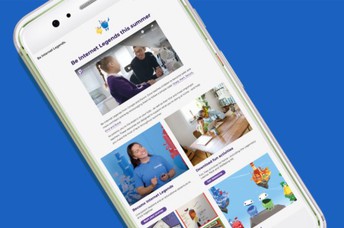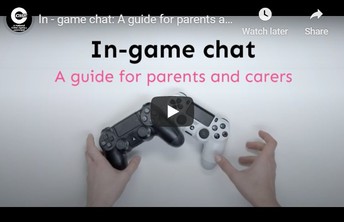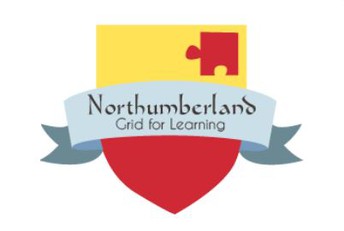Online Safety
KEEPING YOUR CHILD SAFE ONLINE

Sele First School Online Safety Policy
Online Safety Policy March 2024
Sele First School use Fortinet to filter our school devices, in addition, we use SENSO to monitor usage. All children and staff have individual log ins.
It is important to have regular conversations about staying safe online and to encourage children to speak to you if they come across something worrying online.
These resources provide guidance for parents and carers to keep children safe online. They will, amongst other things, support you to talk to your child about a range of online safety issues, set up home filtering in a child-friendly way and set up age-appropriate parental controls on digital devices:
- Thinkuknow by National Crime Agency-CEOP (Child Exploitation and Online Protection) provides resources for parents and carers and children of all ages to help keep children safe online. The Think You Know website also contains an icon button to link you to the CEOP site for reporting inappropriate use of the internet. You just access the website and click on this link to make a report.
- Childnet has developed guidance for parents and carers to begin a conversation about online safety, as well as guidance on keeping under-fives safe online
- Parent Info is a collaboration between Parent Zone and NCA-CEOP, providing support and guidance for parents and carers related to the digital world from leading experts and organisations
- NSPCC has guidance for parents and carers to help keep children safe online
- UK Safer Internet Centre provides tips and advice for parents and carers to keep children safe online – you can also report any harmful content found online through the UK Safer Internet Centre
WHAT HARMS MIGHT MY CHILD EXPERIENCE ONLINE?
You may have concerns about specific harms; there are resources to help you understand and protect your child from different harms online, including:
- cyberbullying
- exposure to age-inappropriate content, such as pornography
- exposure to harmful content, such as suicide content
- exposure to radicalising content
- youth-produced sexual imagery (‘sexting’)
It is really important parents and carers are aware of the risks children face using the internet. You will find below some useful websites you can access to help advise you about keeping your children safe online and tools to help set parental controls.
Some further important advice can be found below:
- Know how your child uses IT equipment (computer, game consoles, and mobile phones). What is the equipment capable of? Does your child know how to access the internet using the equipment?
- Check particularly social networking sites such as Club Penguin, Bebo, MSN, etc. Ensure your child speaks only to friends that have been checked / monitored by you. Generally there is an age limit that needs to be checked.
- Keep your internet antivirus up to date and ensure you are protected. Ensure passwords are un place and parental controls and blocks activated.
- Put key websites into the favourites bar and show your child how to access them. This will save your child from searching the internet using a search engine.
- Explain the importance of not sharing information such as personal details, photographs and details of their personal timetable.
- Discuss what your child should do if they see something that they feel uncertain about.
- Use website that are reputable – stress that not all websites are factual and that not all websites can be trusted.
#WakeUpWednesday
We believe that all parents, carers and trusted adults should be empowered with all the information needed to have informed and age-appropriate conversations about online safety with children. For this reason, we take part in National Online Safety’s ‘Wake Up Wednesday’ campaign. Each Wednesday, National Online Safety produce practical, easy to follow guides which focus on specific risks that we think you need to be aware of.
Online Safety Update
Created for Northumberland Schools
Parent Zone – the new parent hub
A hub of advice for families from Parent Zone’s experts
- fun, free activities
- a fortnightly parent bulletin
- Be Internet Legends livestreams
- a digital noticeboard – for sharing Instagram posts and more
- expert online safety advice
Childnet’s online safety activities
As young people are spending more time at home, with their families, and on devices, Childnet have pulled together a list of resources that you can use with them to explore online safety in a fun, engaging and educational way.
Online safety activities you can do from home
Includes resources for each age group
Gaming : a video guide for parents and carers
Thinkuknow’s new video guide and accompanying article , developed in collaboration with The Association for UK Interactive Entertainment (Ukie), helps parents and carers to understand:
- How in-game chat works;
- How it might be abused by others, and;
- What they can do to help keep their children safe whilst using in-game chat
Online Safety Advice for Parents – Snapchat, Tik Tok and Squid Games
Government guidance for parents
Government guidance for parents – online harms
The government has produced a useful webpage listing sources of advice and support for keeping children safe. The guide includes information about:
- Protect children from domestic abuse
- Teenage relationship abuse
- Child sexual abuse and exploitation
- Sexual assault referral centres
- Crime, Criminal Exploitation and County Lines, violence and gangs
- Protect children from radicalisation
- Prevent
- Online child safety
- Mental health
Northumberland ICT and eLearning Team
SOCIAL MEDIA
We take seriously our responsibility to keep staff and children safe from any form of violence or harassment, physical, written or verbal. Positive behaviour is expected from all parents and carers. They are expected to behave appropriately in their use of social media and set a good example. Sanctions can be implemented by the school against any parent or carer who has published comments relating to any child, another parent, member of staff or the school that would bring them into disrepute.
Complaints should be brought to the attention of the school in an appropriate manner and will be followed up in line with our complaints policy.
MOBILE PHONES
Children should not have these in school except under the exceptional circumstance that they may be required to walk home alone. In such cases parents should speak to the class teacher who will keep the phone during the day. All phones are sent to school at parents risk. School does not accept any responsibility for mobile phones. Parents should not use mobile phones on the yard or in school. Please switch off when in school.
ACCEPTABLE USE POLICY- STAFF AND VISITORS
All staff and visitors on the school site are subject to the content of this policy. Any breach of this policy will result in disciplinary procedures for staff and restriction of activities and potential barring from site for visitors.
ACCEPTABLE USE POLICY – PUPILS
The aim of this Acceptable Use Policy is to ensure that pupils will benefit from learning opportunities offered by the school’s Internet resources in a safe and effective manner. Internet use and access is considered a school resource and privilege. Therefore, if the school AUP is not adhered to this privilege will be withdrawn and appropriate sanctions will be imposed.
It is envisaged that school and parent representatives on the Governing Body will revise the AUP annually. Before signing, the AUP should be read carefully to ensure that the conditions of use are accepted and understood.
This agreement is designed to ensure that all pupils are aware of their responsibilities when using any form of ICT and the related technologies such as email, the internet, web2 technologies and mobile devices.










